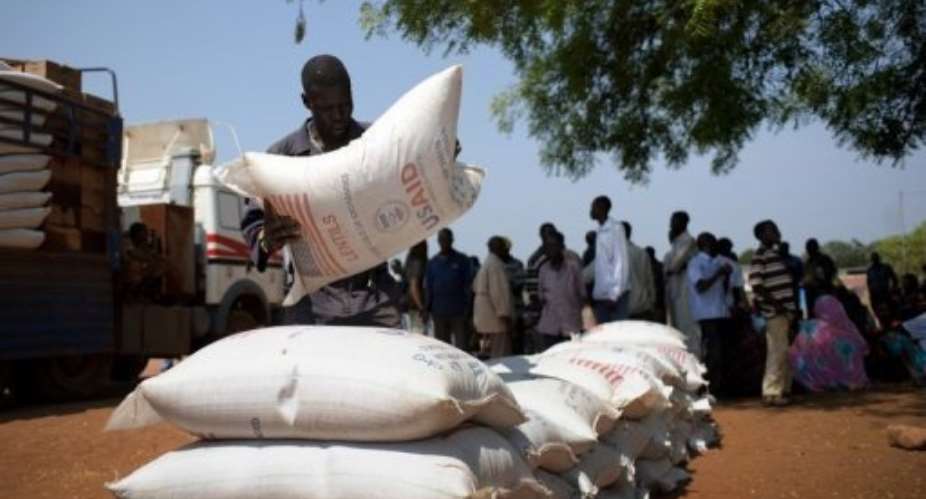BUSAN, South Korea (AFP) - Global leaders Wednesday urged emerging aid donors like China to step up efforts to help the world's poor as US Secretary of State Hillary Clinton warned recipients to be "smart shoppers".
Some 3,500 aid experts from some 160 countries are meeting in South Korea in a bid to increase aid effectiveness at a time of tight budgets in developed countries and growing spending by new donors including China, India and Brazil.
"Europe and the United States may be struggling in the economic situations, but in east and south Asia, in Latin America and even in Africa, many economies are growing," UN Secretary-General Ban Ki-moon told the conference.
"With such success comes responsibilities. This is your chance to assume your new leadership," he said.
Clinton called on all donors to work together to ensure that aid recipients become more self-sufficient and avoid the "resource curse" where they export oil, diamonds or other lucrative goods but remain poor.
"Being an accountable partner also means refusing to look the other way when leaders repress their own people," Clinton said.
She warned developing countries to avoid "quick fixes" that fill short-term budget gaps without lasting benefit.
"Be smart shoppers. Be wary of donors who are more interested in extracting your resources than in building your capacity," she said.
Clinton also pledged that the United States would step up its own efforts by joining the International Aid Transparency Initiative.
She did not single out China, which has ramped up assistance around the world and insists it will avoid what it calls a moralising tone by the West.
But Clinton hit China's arguments head-on, saying: "While national sovereignty is an important principle, it cannot become an excuse for avoiding scrutiny of our development efforts -- not if we want results."
The US secretary of state, however, refused to end all US "tying" of aid -- setting the condition that recipients buy products from the donor. Aid groups say such restrictions create added hurdles for poor countries.
Clinton said two-thirds of US aid was untied in 2009, up from just 32 percent in 2005, but tying was needed in some areas -- such as food assistance -- to ensure domestic support.
The Busan talks are led by the Organisation for Economic Cooperation and Development (OECD), which says members of its Development Assistance Committee spent $129 billion last year.
Booming economies such as Brazil, India and China are not OECD members. China has come under criticism in the West for bank-rolling countries such as Sudan and Zimbabwe, weakening Western pressure aimed at improving human rights.
Britain's international development minister Andrew Mitchell, who arrived in Busan from a visit to Beijing, said China was increasingly accepting the importance of transparency in foreign aid.
He said he hopes it and other emerging donors will be able to support a broad conference declaration on aid principles, expected to be issued Thursday, although the text was still being negotiated.
"I'm hopeful but not yet confident that this text will command support across emerging powers as well as everyone else," Mitchell told a press conference.
"I think what we are trying to do is to get to a very good document which binds everyone together."
Ban in his speech voiced alarm at pressure in developed nations to cut aid funding. "Assistance is not charity. It is smart investment in security and prosperity," he said.
Ban singled out for praise Britain and his native South Korea, a one-time aid recipient which last year joined the club of global donors.
South Korean President Lee Myung-Bak recalled that as a child, his war-torn country was a recipient of aid and it achieved development at the same time as it advanced democracy.
"We feel deeply proud that South Korea is a country that has achieved both industrialisation and democracy at the same time," Lee said.





 Tuesday’s downpour destroys ceiling of Circuit Court '8' in Accra
Tuesday’s downpour destroys ceiling of Circuit Court '8' in Accra
 SOEs shouldn't compromise on ethical standards, accountability – Akufo-Addo
SOEs shouldn't compromise on ethical standards, accountability – Akufo-Addo
 Father of 2-year-old boy attacked by dog appeals for financial support
Father of 2-year-old boy attacked by dog appeals for financial support
 Jubilee House National Security Operative allegedly swindles businessman over sa...
Jubilee House National Security Operative allegedly swindles businessman over sa...
 Nobody can order dumsor timetable except Energy Minister – Osafo-Maafo
Nobody can order dumsor timetable except Energy Minister – Osafo-Maafo
 Mahama wishes National Chief Imam as he clock 105 years today
Mahama wishes National Chief Imam as he clock 105 years today
 J.B.Danquah Adu’s murder trial: Case adjourned to April 29
J.B.Danquah Adu’s murder trial: Case adjourned to April 29
 High Court issues arrest warrant for former MASLOC Boss
High Court issues arrest warrant for former MASLOC Boss
 Align academic curriculum with industry needs — Stanbic Bank Ghana CEO advocates
Align academic curriculum with industry needs — Stanbic Bank Ghana CEO advocates
 Election 2024: We'll declare the results and let Ghanaians know we've won - Manh...
Election 2024: We'll declare the results and let Ghanaians know we've won - Manh...
